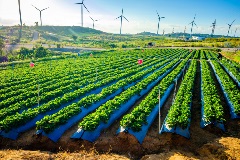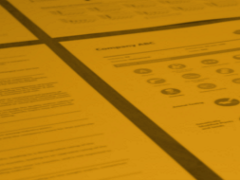The circular way forward could be the key to reducing food waste
Indications that a food crisis is imminent are clear. Fundamental changes in the global food system are required to address these challenges. This decade is a watershed moment for urgent efforts to close the loop, and companies and investors can play a pivotal role. Despite being closely connected to issues such as climate change and basic human rights, food waste has attracted comparatively less attention from companies, investors, and other stakeholders.
ESG Risk Exposure from COVID-19 Vaccine Transportation and Distribution
As mass vaccination against the coronavirus started, a key challenge has been to keep millions of doses of vaccines at the right temperature. An increase in temperature inside a truck or aircraft, by half a degree, for half an hour, would reportedly result in a 'defrosted' vaccine which has then to be discarded.
The Why and the How of Socio-Economic Impact Reporting
As CSR has evolved, companies have become accountable to more than just their shareholders. Stakeholders of all stripes are demanding greater accountability and transparency from organizations. Socio-economic impact reporting goes beyond traditional CSR to provide quantifiable evidence of a company’s positive socio-economic impact on its stakeholders.
Sustainable Finance Insights - Climate Adaptation, Biodiversity, Natural Capital, and More
In this monthly round-up of sustainable finance news, transactions, and regulations, Nick and Cheryl discuss the importance of biodiversity, demands for more sustainability reporting standards and answer listener questions.
Gender Equality in Supply Chains: An Opportunity to Increase Positive Impacts
It’s well known that inequalities between men and women still exist in the workplace. Women are less likely to fill senior leadership positions (29% in North America), earn less (81 cents per dollar in the US) and own fewer businesses (39% of businesses in the US) than men.
10 for 2021: Investing in the Circular Economy
This report aims to support investors interested in gauging environmental, social and governance (ESG) risks and opportunities in the global food value chain. We survey key subindustries – from agrochemicals, agriculture and aquaculture to packaged food, food retail and restaurants – in search of solutions that may support the principles of the circular economy (CE). These principles include minimizing waste and pollution, extending the use-phase of products and ecosystem regeneration. Some of the key insights found in the report are:
The Water Scarcity Challenge: Opportunities for Sustainable Solutions
Water may not be a top-of-mind concern for most investors, but it could turn out to be one of the most important investment themes of the 21st century. Market opportunities related to the water industry could reach USD 1 trillion by 2025.[1] As the issues of water quality and availability continue to make headlines, more investors are searching for opportunities to mitigate social and environmental risks while supporting sustainable solutions.
Second Party Opinion - Green, Social and Sustainability Bonds
Issuers looking to support their sustainability strategy through sustainable finance solutions have several options, from sources of debt to equity instruments. These solutions include Green Loans, Sustainability Linked Loans, Green Bonds, Sustainable Bonds and more.















